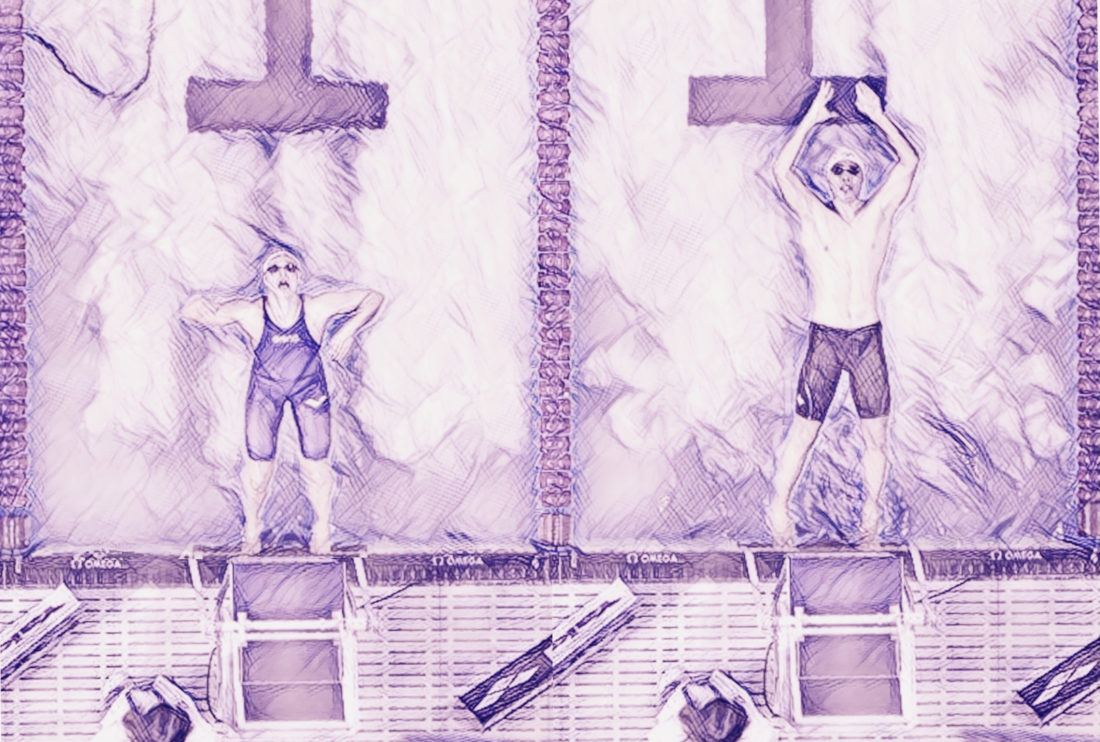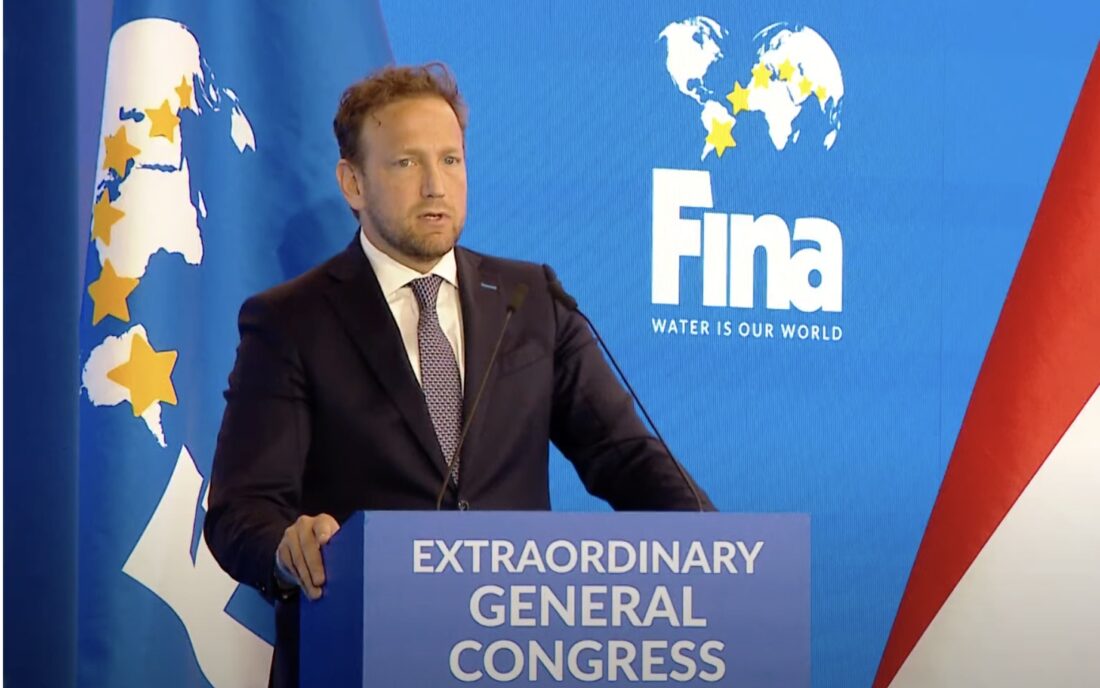Working Group Given More Time To Shape A New Open Category As FINA Confirms Women For Females Only

The working group tasked with shaping a new Open category in aquatics sport after a widely praised June decision of FINA to ring-fence the women’s category in aquatics sports for female athletes only, has asked for more time to work through complex questions.
The working group, which includes members of the transgender community, has met three times since the FINA decision and is making progress but after its last meeting a month ago reported back to FINA that it did not want to rush a decision when there were issues that still needed working out.
The nature of those issues is like the group itself: a secret until policy and rules are in place to put to a vote of Congress at the coming World Aquatics Championships, in Fukuoka, Japan, next summer.
One of the key questions is whether sports roll men and open together or whether open will only be open to specific groups of people who don’t have access to female sport became although they identify as women they are biologically male and have been ruled out of female aquatic sports on grounds that they have male advantages that cannot be reversed by any hormone therapy nor even surgery.
There are also questions such as prize money and fairness to other athletes. Would World-championship finalists getting limited prize money be happy to see the winner in a very specific, narrow group gain access to top prize money with performances that would not normally qualify them for international competition?
Many other sports, some at international and domestic levels (like international cycling and U.S. rowing) heavily criticised for their continued discrimination against women, have been waiting and watching to see where FINA will go next after it led the way on ring-fencing the women’s category for female athletes only with a landmark decision last June.
Some decisions in the debate over trans inclusion have been laden with hypocrisy. U.S. Rowing triggered waves of criticism in the past week for a domestic decision that leaves its women’s category open to biological males identifying as women while insisting that the four women in the eights mixed team must be female. That sent the standard message to women: where it affects men, no way; where it affects women, move over and make way for male advantage because women don’t have equal rights when it comes to Fair Play.
Meanwhile, New Zealand sent a message to women this week that in their country, biology and science no longer count in sport – it’s all about feelings. This is what happens as a result:
Open Decision Delayed Until 2023
The aquatics ‘Open’ working group had been due to report back in time for FINA to make an announcement at the World Short-Course Swimming Championships that will get underway in Melbourne, Australia, next week.
Now, there will be no news on the Open category and the work of a secret task force until Fukuoka in the summer. FINA executive director Brent Nowicki explained:

“We’ve assembled a group. There’s been a number of meetings. They have been working for probably four to five months on the concept, but they’re going to need more time. We had our last meeting about a month ago and at that point there was a request just for some additional time. They want to get it right.”
“It’s complex. They want to make sure that they get all their touch points in place before anything is kind of rolled out, if it’s rolled out at all. And, frankly speaking, I’m not sure where it’ll go. I’ve really tried to remove myself from the discussion out of just pure respect for what they want to do and what they think is the best thing to do.
“I don’t want to push them. I want to get it right, so I don’t really feel they need to rush to make a decision on this. But I can say, earnestly, that it’s going well. There’ve been some really great interactions and some really great suggestions that have been reported back to me, so I’m highly motivated by their work.”
Brent Nowicki
The identities of the working group will not be revealed until after a decision has been made and a vote is about to be taken. Only then will we get to see who shaped the policy and what arguments they brought to the table.
It is known that the working group includes scientists, human rights advocates, lawyers and trans athletes but their identities remain strictly confidential and while it is assumed, it is not clear whether the group includes athlete representatives of the men’s and women’s categories.
That issue is a big one in many sports because women have been largely excluded from a discussion, let alone policy making, that affects them and the sex-based sports category created for them specifically because male advantage in female sport spells the death of female sport.
Why the fuss, say trans activists – there are so few trans athletes anyway. If recent years have shown that’s untrue, that view ignores a history of sport that proves you only need a few protagonists competing with a distinct and unfair advantage to cause mayhem in a single category, the women’s category by far the most blighted by that reality.
Nowicki kept confidential the identity of the task force that worked on the rules voted into place last year. It was a wise thing to have done. The same applies to the current working group. He said: “I won’t disclose the names of them, out of respect (and to prevent) people contacting them and pressuring them. It‘s better just to let them do the work. But I will say that there are a nice mix of trans athletes, trans individuals, people who’ve been involved in event organisation and the swimming side. They are a diverse group so there shouldn‘t be so much concern that it’s going to be this white male, stereotypical focus group. It’s not the case.”
FINA, meanwhile, has confirmed that any decision about the Open category will have no impact on the decision last June to ring-fence the women’s category for female-born athletes.